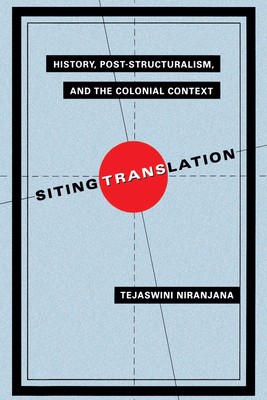
- We will send in 10–14 business days.
- Author: Tejaswini Niranjana
- Publisher: University of California Press
- ISBN-10: 0520074513
- ISBN-13: 9780520074514
- Format: 14 x 20.9 x 1.7 cm, softcover
- Language: English
- SAVE -10% with code: EXTRA
Reviews
Description
The act of translation, Tejaswini Niranjana maintains, is a political action. Niranjana draws on Benjamin, Derrida, and de Man to show that translation has long been a site for perpetuating the unequal power relations among peoples, races, and languages. The traditional view of translation underwritten by Western philosophy helped colonialism to construct the exotic "other" as unchanging and outside history, and thus easier both to appropriate and control.
Scholars, administrators, and missionaries in colonial India translated the colonized people's literature in order to extend the bounds of empire. Examining translations of Indian texts from the eighteenth century to the present, Niranjana urges post-colonial peoples to reconceive translation as a site for resistance and transformation.
EXTRA 10 % discount with code: EXTRA
The promotion ends in 16d.23:25:14
The discount code is valid when purchasing from 10 €. Discounts do not stack.
- Author: Tejaswini Niranjana
- Publisher: University of California Press
- ISBN-10: 0520074513
- ISBN-13: 9780520074514
- Format: 14 x 20.9 x 1.7 cm, softcover
- Language: English English
The act of translation, Tejaswini Niranjana maintains, is a political action. Niranjana draws on Benjamin, Derrida, and de Man to show that translation has long been a site for perpetuating the unequal power relations among peoples, races, and languages. The traditional view of translation underwritten by Western philosophy helped colonialism to construct the exotic "other" as unchanging and outside history, and thus easier both to appropriate and control.
Scholars, administrators, and missionaries in colonial India translated the colonized people's literature in order to extend the bounds of empire. Examining translations of Indian texts from the eighteenth century to the present, Niranjana urges post-colonial peoples to reconceive translation as a site for resistance and transformation.


Reviews